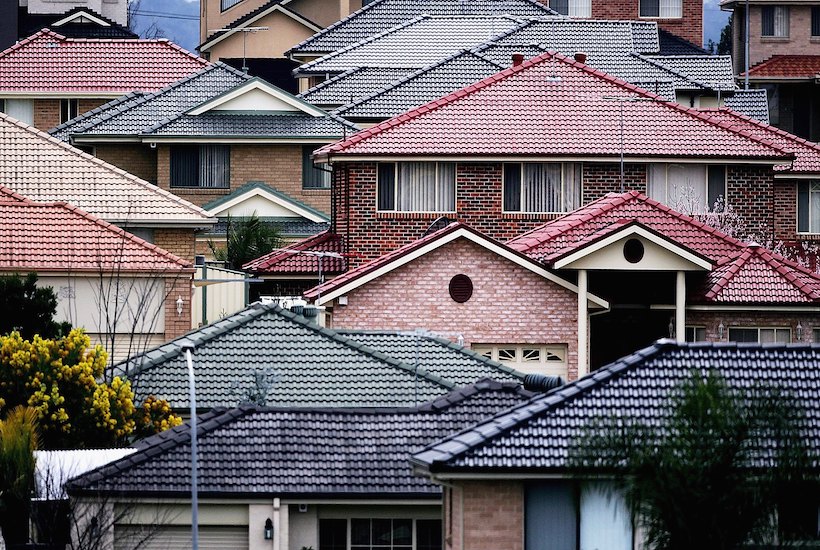It speaks to the shallowness of Australian democracy that the obvious is now very seldom spoken. A wide range of economic and social issues are now encased in thick plaques of unreality that result in serious policy discussion rarely being entertained. This is particularly true of immigration and its impact on house prices.
Property industry consultants, economists and building industry advocates are loath to mention the simple fact that immigration drives up house prices. The straightforward notion that directly increasing the demand for housing, by deliberating expanding the number of people looking for housing, is apparently beyond their capacity to admit publicly.
The reticence to concede basic economics is a function of Australia’s stifling business and political culture. Housing sector lobbyists and property analysts are bought and paid for by the construction industry, so they are effectively paid to keep quiet. Market economists on the other hand are afraid to appear anti-immigrant for fear of alienating the corporate sector and incurring the wrath of progressive politicians.
Very limited pockets of independent thought do occasionally allow the obvious to be mentioned, but even then, it’s only in passing and without serious examination. An honest and complete exploration of the effects of immigration on housing prices would quantify its impact and facilitate our understanding of an obvious policy lever for alleviating the housing affordability crisis currently being experienced in Sydney and across the continent.
The bottom-line is that conservatives in Australia are orphaned intellectually. There is no voice of reason to examine the obvious case for dramatically lowering the immigration intake to address the housing affordability crisis.
The policy issue, of course, centres on how large an impact immigration has had on house prices. This is where economists should come into their own and offer deeper insights into the trade-offs between housing affordability and stronger population growth driven by immigration policy. The fact that, with some notable exceptions, economists haven’t made a significant contribution to the debate speaks to the desperate state of the policy environment.
The economic literature on the topic all points to a positive relationship between population growth and house prices. There are varying estimates of the elasticity of house prices with respect to population growth from studies across the globe, each reflecting different domestic conditions. Despite occupying an entire continent, Australia is one of the most highly urbanised countries in the world and constraints on development in our cities limits the ability for new supply to moderate demand pressures on housing markets.
Closer to home, an economist at the Reserve Bank of New Zealand has estimated that for every one percent increase in the population across the ditch there will be an eight percent rise in house prices over the next three years. The estimated effect is large and immigration alone in New Zealand over the last five years led to a more than five percent increase in the population.
House prices have skyrocketed in New Zealand as a result and Auckland now ranks fourth in the list of least affordable housing markets in the world. It’s not hard to see why the conservative government of Bill English lost power in the face of a Labour Party committed to reducing immigration numbers, however phony those election promises.
While there’s a dearth of literature in the Australian case we can take guidance from a range of sources. Australia is a much larger country than New Zealand, so what appears to be a greater responsiveness of supply should ease the pressure on house prices, suggesting a lower estimate. International estimates of the elasticity of house prices with respect to population also tend to be lower than the estimate for New Zealand.
One economist has told me privately that using conventional econometric techniques it is relatively straight-forward to show that the long-run elasticity of house prices with respect to population growth is somewhere between two and three. When asked why he hadn’t published his finding or drawn attention to their policy implications, he ominously stated “career implications”.
Immigration is one of the key drivers of house prices in Australia. Politicians from both major parties have pushed one of the world’s largest immigration programs on the Australian people for a generation with the effect of pricing many of them out of the housing market.
This is particularly tragic for our young people, many of whom now consider home ownership an unattainable goal. Young couples have clearly deferred starting families to instead save for a deposit on a home. These impacts of housing affordability have fed directly through to rental markets. Anyone trying to rent in Sydney knows it’s an absolute nightmare and life is constantly disrupted by a game of musical apartments as leases come due.
It’s not as though both major political parties didn’t know this either. Treasury will have told all the cabinet ministers in the current government that immigration increases house prices; they’ve just been too craven to admit the fact to the electorate publicly.
A stale and intolerant political class has insisted that the public can not be allowed to know the truth for fear of undermining support for an immigration program that no one really asked for in the first place and, had they been given the option at the ballot box, would have been roundly rejected.
This is not a feature of our democracy that serves us well, or that should inspire trust in our politicians. The harsh thought policing of public discussion around the issue of immigration has been extreme and speaks to the shallowness of policy debate.
Australians now have a generational opportunity to break the intellectual stranglehold of a failed political elite. Only honest debate and the courage to stare down vested interests will make us capable of moving policy in a positive direction. Dramatically reducing immigration is necessary to ease pressure on housing markets and that alone, as a fundamental component of a conservative policy platform, dramatically sets us apart from the major political parties.
John Macaulay is the NSW Director of the Australian Conservatives.
Got something to add? Join the discussion and comment below.
Got something to add? Join the discussion and comment below.
Get 10 issues for just $10
Subscribe to The Spectator Australia today for the next 10 magazine issues, plus full online access, for just $10.


























Comments
Don't miss out
Join the conversation with other Spectator Australia readers. Subscribe to leave a comment.
SUBSCRIBEAlready a subscriber? Log in